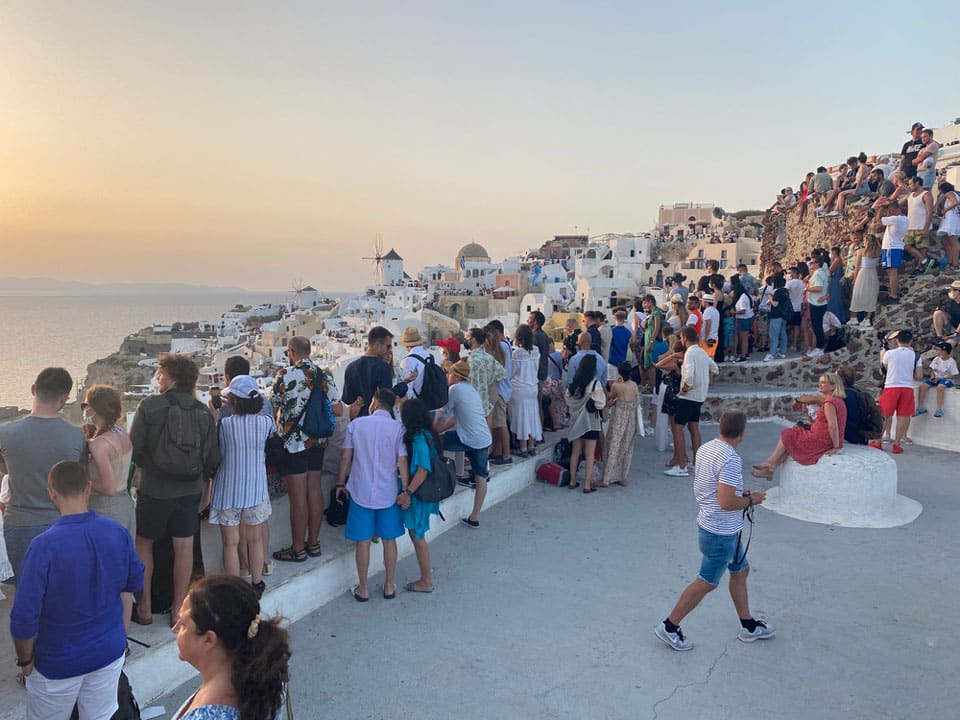Strategic Communication and Tourism Industry

Dear friends, for those of you who do not know, I have been writing about tourism since 2010 in the Greek language in well-known media in the tourism field in Greece. With this article, I inaugurate a series of special articles on tourism in the English language in this welcoming environment. The centerpiece of all these articles will of course be Strategic Communication, with critical observations and highlights on topics that are often underestimated with unpleasant results most of the time. So this article could be classified as introductory.
The tourism industry is a vast and complex ecosystem that heavily relies on effective communication to thrive. With the rise of social media, instant messaging apps, and digital marketing, communication has become even more critical than ever before. Strategic communication in the tourism industry has become an essential aspect of promoting destinations, attracting tourists and building relationships with stakeholders. In this article, we delve deeper into how Strategic Communication is shaping the tourism industry, its challenges, and opportunities for growth.
Tourism is a thriving industry that has become one of the largest export industries globally. As already said, Strategic Communication plays a critical role in the success of the tourism industry. So, it is important to understand the fundamentals of the tourism industry to appreciate its significance. The tourism industry comprises businesses involved in providing travel-related products and services to visitors. This includes lodging, transportation, attractions, entertainment, and food services.
The industry contributes significantly to the economy, creating jobs and generating revenue. The importance of Strategic Communication in the tourism industry becomes even more crucial in a competitive landscape where businesses have to cater to a diverse range of visitors to maintain their market position. Understanding the key actors and stakeholder mapping in the tourism industry is essential to develop effective communication strategies.

The tourism industry is a competitive market. Therefore, having an effective communication strategy is crucial to achieving business success. By targeting key audiences with consistent and relevant messages, tourism service providers can enhance customer satisfaction and grow their businesses.
Moreover, Strategic Communication can also stimulate the organization’s stakeholders to express their opinions and transmit the spirit of innovation. In addition, the tourism industry, as one of the largest export industries globally, emphasizes the need to have expressive communication skills to offer a better tourism product and create a pleasant tourist experience. Ultimately, a well-designed communication strategy can have a significant positive impact on the industry’s growth and marketing, making it a determinant of success that cannot be ignored.
The success of tourism relies heavily on effective communication, and identifying key factors that play a strategic role in tourism communication is crucial. These factors include businesses in the travel and tourism industry, local communities, and the public. Tourism businesses play a major role in the world economy, and their marketing efforts must be directed toward key audiences – those with whom they will communicate directly through advertising and media outreach.
The involvement of local communities is crucial in planning for sustainable tourism, as their support can foster economic, social, and cultural well-being. Finally, the public is an important target audience for tourism communication as they make decisions on where to travel and what activities to participate in. Understanding the roles of these key factors is essential in developing an integrated marketing communication strategy that fosters growth and sustains the resilience of the tourism industry.
Stakeholder mapping is an essential factor for effective communication in the tourism industry. By identifying key stakeholders and categorizing them based on their interests and influence, tourism organizations can develop tailored communication strategies that meet their unique needs. This process ensures that communication channels are optimized and messages are delivered to the right people at the right time.
In this way, stakeholders feel valued and more likely to support the goals of the business. Additionally, a robust stakeholder mapping strategy can help tourism organizations navigate effectively through crises by identifying key stakeholders that need to be communicated with during a crisis situation. By developing a comprehensive stakeholder mapping plan, tourism organizations can enhance their communication strategies and build long-term relationships with stakeholders.
Crisis Management is a critical competency for tourism organizations in the face of any crisis, be it natural disasters or pandemics. As mentioned earlier, communication is at the center of crisis management in the hospitality and tourism industry. Tourism organizations must develop a crisis communication strategy that is swift, proactive, and sensitive to stakeholders’ concerns.
Effective crisis communication is necessary for stakeholder mapping and developing trust among tourists, communities, employees, and governments. In a crisis such as the pandemic, tourism organizations worldwide should focus on keeping all their stakeholders informed, supported, and safe. Listening, which is a fundamental condition for effective communication, can aid tourism organizations in engaging and building trust among their stakeholders.
In particular, listening to stakeholders and audience feedback is vital to design efficient marketing campaigns. This feedback helps in identifying key messages and delivering customized content through suitable platforms. A well-planned marketing mix that communicates the right message through appropriate platforms is necessary to build and maintain the brand’s reputation. Crisis communication strategies must be in place to deal with any unexpected negative events. The quality of communication is essential in influencing the target market’s behavior towards the destination, hotel, or activity. The tourism industry’s future success lies in integrating digital communication channels into the strategy and creating sustainable campaigns that enhance the industry’s reputation. By adhering to these determinants of success, the tourism industry can effectively communicate its benefits and achievements to enhance awareness and drive growth.

Consequently, in order for Strategic Communication to be truly effective in the tourism industry, listening skills are paramount and that is why they must cultivate. This is because effective communication is a two-way street, which requires active listening in addition to speaking. The previous analysis has established the importance of Strategic Communication in tourism, the key factors involved, and even crisis communication strategies.
However, none of these endeavors can be successful without proper listening. Listening allows stakeholders to truly understand the concerns and needs of all parties involved, from employees to tourists to local communities. By taking the time to really listen, tourism industry professionals can build stronger relationships and create a more sustainable future for all involved. This means that stakeholders in the tourism industry should listen to their clients and each other, to identify opportunities for growth, and avoid calamities. As technology advances and tourist demands change, Strategic Communication will become increasingly necessary for tourism businesses to remain competitive and sustainable.
Written by Fotis Pantopoulos.
Have you read?
Why Employers Forcing a Return to Office is Leading to More Worker Power and Unionization by Dr. Gleb Tsipursky.
Want to succeed as a digital entrepreneur? The key is working smarter, not harder by Hemi Hossain.
Pirates, Treasure, & Your Retirement by David C. Bentall.
How to Become Successful in Business By Leaning Into A Community by Alden Mills.
CEOS: Give the Gift of a Peer Group by Leo Bottary.
Bring the best of the CEOWORLD magazine's global journalism to audiences in the United States and around the world. - Add CEOWORLD magazine to your Google News feed.
Follow CEOWORLD magazine headlines on: Google News, LinkedIn, Twitter, and Facebook.
Copyright 2025 The CEOWORLD magazine. All rights reserved. This material (and any extract from it) must not be copied, redistributed or placed on any website, without CEOWORLD magazine' prior written consent. For media queries, please contact: info@ceoworld.biz








